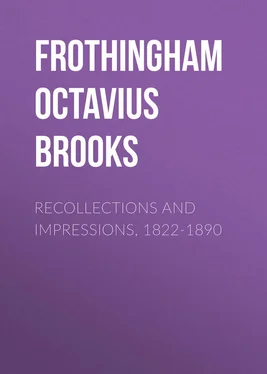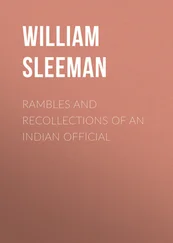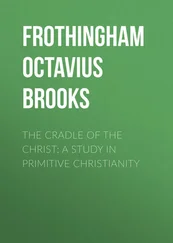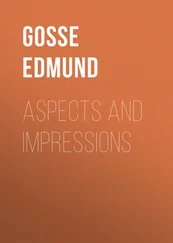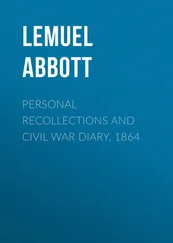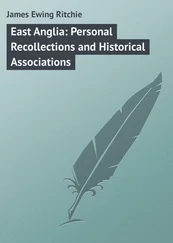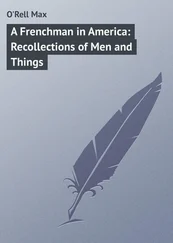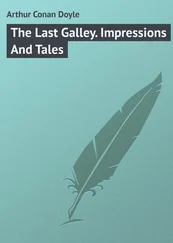Octavius Frothingham - Recollections and Impressions, 1822-1890
Здесь есть возможность читать онлайн «Octavius Frothingham - Recollections and Impressions, 1822-1890» — ознакомительный отрывок электронной книги совершенно бесплатно, а после прочтения отрывка купить полную версию. В некоторых случаях можно слушать аудио, скачать через торрент в формате fb2 и присутствует краткое содержание. Жанр: foreign_antique, foreign_prose, на английском языке. Описание произведения, (предисловие) а так же отзывы посетителей доступны на портале библиотеки ЛибКат.
- Название:Recollections and Impressions, 1822-1890
- Автор:
- Жанр:
- Год:неизвестен
- ISBN:нет данных
- Рейтинг книги:3 / 5. Голосов: 1
-
Избранное:Добавить в избранное
- Отзывы:
-
Ваша оценка:
- 60
- 1
- 2
- 3
- 4
- 5
Recollections and Impressions, 1822-1890: краткое содержание, описание и аннотация
Предлагаем к чтению аннотацию, описание, краткое содержание или предисловие (зависит от того, что написал сам автор книги «Recollections and Impressions, 1822-1890»). Если вы не нашли необходимую информацию о книге — напишите в комментариях, мы постараемся отыскать её.
Recollections and Impressions, 1822-1890 — читать онлайн ознакомительный отрывок
Ниже представлен текст книги, разбитый по страницам. Система сохранения места последней прочитанной страницы, позволяет с удобством читать онлайн бесплатно книгу «Recollections and Impressions, 1822-1890», без необходимости каждый раз заново искать на чём Вы остановились. Поставьте закладку, и сможете в любой момент перейти на страницу, на которой закончили чтение.
Интервал:
Закладка:
In the early part of my career, I took my meals in Commons, at an expense of two dollars and a quarter a week, the highest price then paid. Commons was abolished for a time in 1849, it being found difficult to satisfy the students, who for some years had boarded in the houses in the neighborhood.
There were excitements too. Though there was no gymnasium, or boating, and little foot-ball, base-ball, or cricket (these games were all very simple and rudimentary), there were the clubs, the "ΑΔΦ," still a secret society, and occupying a back upper room, to which we mounted by stealth, – the same room serving for initiations and sociables, – was exceedingly interesting in a literary point of view. There were papers on Scott, Byron, Wordsworth, delightful conversations, anecdotes, songs.
The "Institute of 1770" taught us elocution, and readiness in debate; the "ΦΒΚ," no longer a secret society, and no longer actively literary, hung over us like a star, stimulating ambition and inciting us to excellence in scholarship.
Altogether it was a delightful life; a life between boyhood and manhood; of purely literary ambition, of natural friendship. There was no distinction of persons, no affected pride. We found our own level, and kept our own place. Money did not distinguish or family, only brains. There was no care but for intellectual work; there was no excess save in study. Expenses were small, indulgences were few and simple. The education was more suited to those times than to these, when culture must be so much broader, and social expectations demand such varied accomplishments.
III.
DIVINITY SCHOOL
To enter at once the Divinity School was to start on a predestined career. From childhood I was marked out for a clergyman. This was taken for granted in all places and conversations, and my own thoughts fell habitually into that groove. There was nothing unattractive in the professional career as illustrated by my father. I was the only one of a large family of brothers who pursued the full course of studies at Cambridge, or who showed a taste for the scholastic life. An appetite for books rather than for affairs pointed first of all to a literary calling, while a fondness for speculative questions, a leaning towards ideal subjects, and a serious turn of mind naturally suggested at that time the pulpit. An inward "experience of religion," which in some other communions was regarded as essential to the character of a minister of the gospel, was not demanded. Religion was rather moral and intellectual than spiritual, a matter of mental conviction more than of emotional feeling. The clerical profession stood very high, higher than any of the three "learned professions," by reason of its requiring in larger measure a tendency towards abstract thought, an interest in theological discussions, and a steady belief in doctrines that concerned the soul. Literature was not at that period a profession; there was no Art to speak of except for genius of the first order like that of Allston or Greenough. Men of the highest intellectual rank, whatever they may have become afterwards, tried the ministry at the start. The traditions of New England favored the ministerial calling. The great names, with here and there an exception, were names of divines. The great books were on subjects of religion; the popular interest centred in theological controversy; the general enthusiasm was aroused by preachers; the current talk was about sermons. The clergy was a privileged class, aristocratic, exalted.
Divinity Hall had been dedicated in August, 1826. It was situated on an avenue about a quarter of a mile from the college yard. It contained, besides thirty-seven chambers for the accommodation of students, a chapel, a library, a lecture-room, and a reading-room; it stood opposite the Zoölogical Museum. Before it was a vacant space used for games. Behind it was meadow land reaching all the way to Mr. Norton's. Just beyond it was Dr. Palfrey's residence. George Rapall Noyes, D.D., was elected in May, 1840, with the title of "Hancock Professor of Hebrew and Oriental Languages, and Dexter Lecturer on Biblical Literature." He had already translated the poetical books of the Old Testament, and it was his eminence as a translator which had won him fame while a minister at Petersham. It was his duty also to explain the New Testament, and in addition to give lectures in systematic theology. Besides all this he was to preach in the college chapel a fourth of the year. He steadily grew in the respect and attachment of the young men; his authority in the lecture-room was very great; his opinions were carefully formed and precisely delivered; and his shrewd, practical wisdom was long remembered by his pupils. Convers Francis, D.D., appointed to the "Parkman Professorship," after the resignation of Henry Ware, Jr., was his associate. The branches assigned to him were ecclesiastical history, natural theology, ethics, the composition of sermons, and instruction in the duties of a pastor; besides all this he was to preach half of the time in the college chapel. Dr. Francis was an accomplished scholar and a faithful teacher. The best man, too, for his position, at a time when in an unsectarian school it was exceedingly desirable that the professors should harmonize all tendencies; for with a strong sympathy with "transcendentalism," as it was then called, he had been a most successful parish minister, a very acceptable preacher, and a man in whom all the churches had confidence.
At Cambridge, owing to the influence of Buckminster, Ware, and Norton, Unitarian opinion prevailed, though the controversial period had passed by when I was there. The clouds of warfare no longer discharged lightning; there was no roll of thunder; only a faint muttering betrayed the former excitement; and the memory of old conflicts hovered round the spots where the fights had been hottest. Marks of strife were still visible on texts, and chapters were scarred with wounds. Comment still lingered near the passages where polemics had raged, and the blood burned as we read the tracts or studied the essays of the champions we admired.
It was impossible to forget the interpretations that had been given to words or phrases. A strictly scientific study, either of the Bible or the creed, was therefore out of the question. But the course of exercises was broad, generous, inclusive, as far as this was feasible. The bias was decidedly unorthodox, yet without the bitter temper of opposition. The old system was rather set aside than attacked. It was assumed to have been vanquished in the fair field. The professors were liberal in their views. A small but serviceable library furnished the students with a certain amount of needed material, the college library was freely opened to them, and the collections of the professors were gladly placed at their disposal. The days were fully occupied with lectures, recitations, discussions, exercises in writing out and taking of notes. Once a week there was a debate on some general theme not connected with the topics of the class-room; and at the latter part of the course there was special training in the composition and delivery of sermons, accompanied by a brief experience of extemporaneous speaking. The Unitarian ministry was alone contemplated; no wide divergence from it was encouraged, and the conservative methods of interpretation were the ones recommended. Some knowledge of Greek and Latin being presupposed, the study of Hebrew was made the one study of language, and this was pursued with the best available helps. Biblical criticism naturally took a prominent place in the current curriculum, under the guidance of the most distinguished authorities; books of every school were recommended, whether old or new, Catholic or Protestant, "conservative" or "liberal," Horne, Tholuck, De Wette being consulted in turn. The New Testament and "Historical Christianity" were taken for granted; and these meant belief in miracles, which were defended against rising objections of the Strauss and Paulus schools, the former holding by the "mythical" theory, the latter favoring the notion of a natural explanation of some sort. The hostility towards rationalism was decided. This was forty years ago, before the "historical method," as it was called, instituted by Baur, Schwegler, Zeller, Sneckenburger, and the Theologische Jahrbücher , had any expositor in this country, long before the Dutch school, the later French school – Kuenen, Reville, Reuss, Nicolas, Renan, – came out. The great issue was the credibility of the miracles of the Old and New Testaments. The half-monastic life we led at Divinity Hall cut us off a good deal from social amenities, reform agitations, attempts to change institutions, and even from the deeper currents of religious sentiment. None but the very observant took note of Brook Farm, or heeded the movements in behalf of Association that were going on in other communities. Whatever was outside of the "Christian" ministry concerned us but little. The professors did not direct our eyes to the mountain tops or call attention to the bringers of good tidings from other quarters than the Christian Revelation, as explained by its scholars and writers. Even such a phenomenon as Emerson did not make a profound impression on the average mind.
Читать дальшеИнтервал:
Закладка:
Похожие книги на «Recollections and Impressions, 1822-1890»
Представляем Вашему вниманию похожие книги на «Recollections and Impressions, 1822-1890» списком для выбора. Мы отобрали схожую по названию и смыслу литературу в надежде предоставить читателям больше вариантов отыскать новые, интересные, ещё непрочитанные произведения.
Обсуждение, отзывы о книге «Recollections and Impressions, 1822-1890» и просто собственные мнения читателей. Оставьте ваши комментарии, напишите, что Вы думаете о произведении, его смысле или главных героях. Укажите что конкретно понравилось, а что нет, и почему Вы так считаете.
